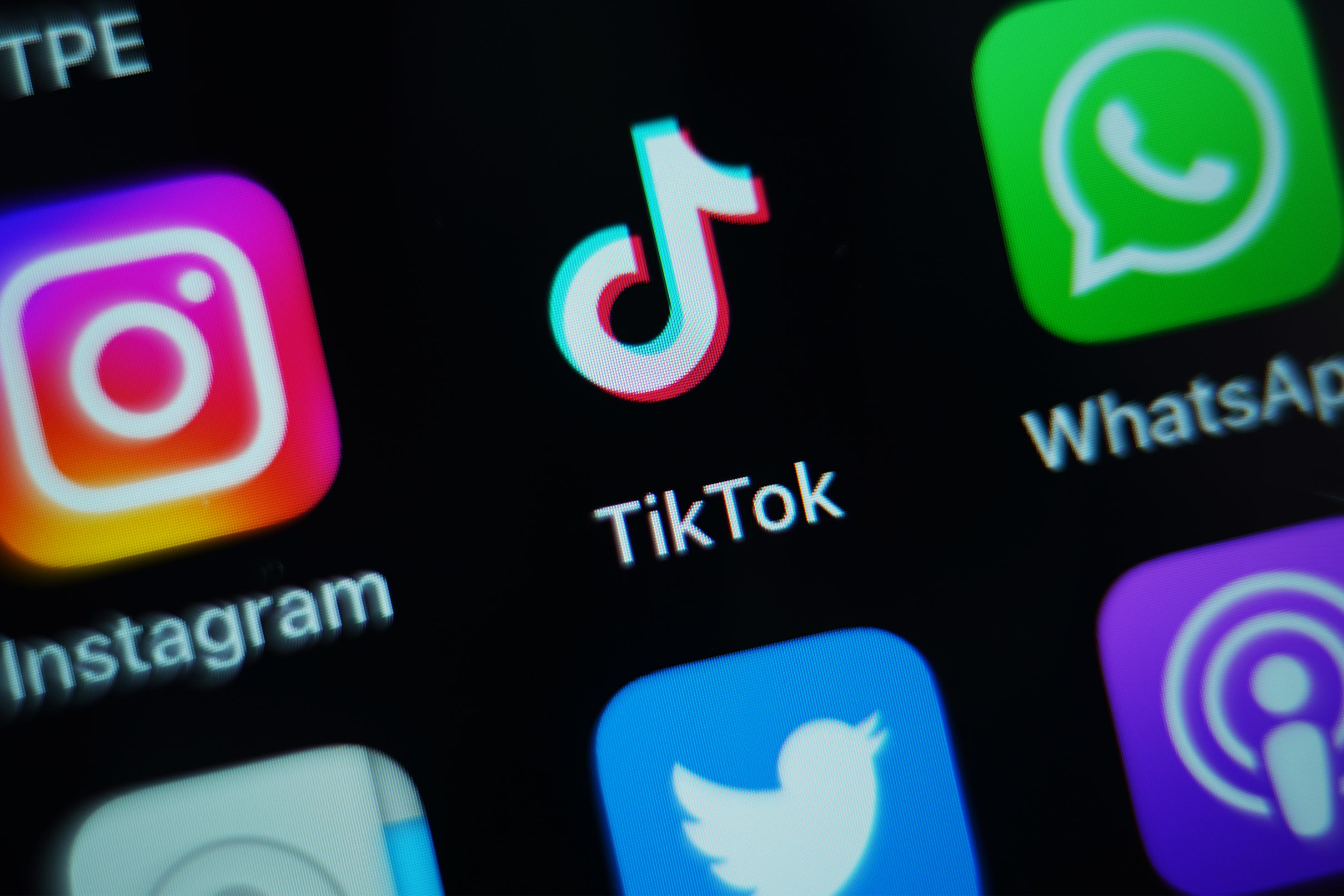TikTok use could lead to higher risk of eating disorders, study suggests
Researchers found exposure to certain videos on the platform also impacted body image satisfaction.

Exposure to certain videos on TikTok could put women at a higher risk of developing eating disorders, a study has suggested.
Researchers warned there must be “effective controls” put in place on the platform to stop what they describe as “pro-anorexia” content circulating, or risk users experiencing “detrimental consequences”.
For the study, some 273 female TikTok users aged 18 to 28 were given questionnaires that measured disordered eating behaviour, such as binge eating and self-induced vomiting, as well as body satisfaction and internalisation of societal beauty standards.
The majority were from Australia, with 71% reporting that they spent up to two hours a day on TikTok.
Unless effective controls are implemented within the platform to prevent the circulation of pro-anorexia content, female-identifying TikTok users may continue to experience immediate detrimental consequences for body image satisfaction.
Of the group, 126 were shown TikTok videos about disordered eating, such as young women restricting food intake and sharing weight loss tips, as well as videos of slim women showing off cinched waists and content about working out and juice cleanses.
The remainder of the group were shown videos about nature, cooking, comedy and animals.
After watching seven to eight minutes of TikToks, the two groups were then asked to fill out the surveys on body image and beauty standards again.
The study, published in the journal Plos One, found that pro-anorexia content “significantly decreased” the first group’s body image satisfaction and increased their internalisation of appearance ideals.
Researchers said: “Our findings indicate that female-identifying TikTok users may experience psychological harm even when explicit pro-anorexia content is not sought out and even when their TikTok use is time-limited in nature.”
The team also called for stricter controls on pro-eating disorder content being posted on the platform.
They added: “The findings of this study suggest cultural and organisation change is needed.
“There is a need for more stringent controls and regulations from TikTok in relation to pro-anorexia content as well as more subtle forms of disordered eating- and body-related content.”
Prohibiting or restricting these videos could reduce the risk of eating orders developing among users, the study suggests.
“There are current steps being taken to delete dangerous content, including blocking searches such as ‘#anorexia’, however, there are various ways users circumvent these controls and further regulation is required,” researchers said.
“Unless effective controls are implemented within the platform to prevent the circulation of pro-anorexia content, female-identifying TikTok users may continue to experience immediate detrimental consequences for body image satisfaction, thin-ideal internalisation, and may experience an increased risk of developing disordered eating behaviour.”
Tom Quinn, director of external affairs at the UK’s eating disorder charity Beat, said: “Eating disorders are complex mental illnesses, and whilst we don’t know the exact causes, it is concerning that viewing so-called ‘pro-anorexia’ content can be a contributing factor.
“Unfortunately there is a great deal of harmful content shared on social media platforms, most often circulated by those who are unwell themselves.
“These platforms have a responsibility to their most vulnerable users and should take steps to protect them from harm wherever possible, including ensuring that pro-eating disorder content isn’t promoted in their algorithms, preventing irresponsible content from being uploaded to begin with, and making it easier for users to report and block any videos they might come across.
“We’d urge anyone who is struggling with their social media usage to take a step away, and instead focus on positive sources which promote recovery such as Beat.”
TikTok said that its community guidelines do not allow “showing or promoting disordered eating and dangerous weight loss behaviours”, or “facilitating the trade or marketing of weight loss or muscle gain products”.
Bookmark popover
Removed from bookmarks